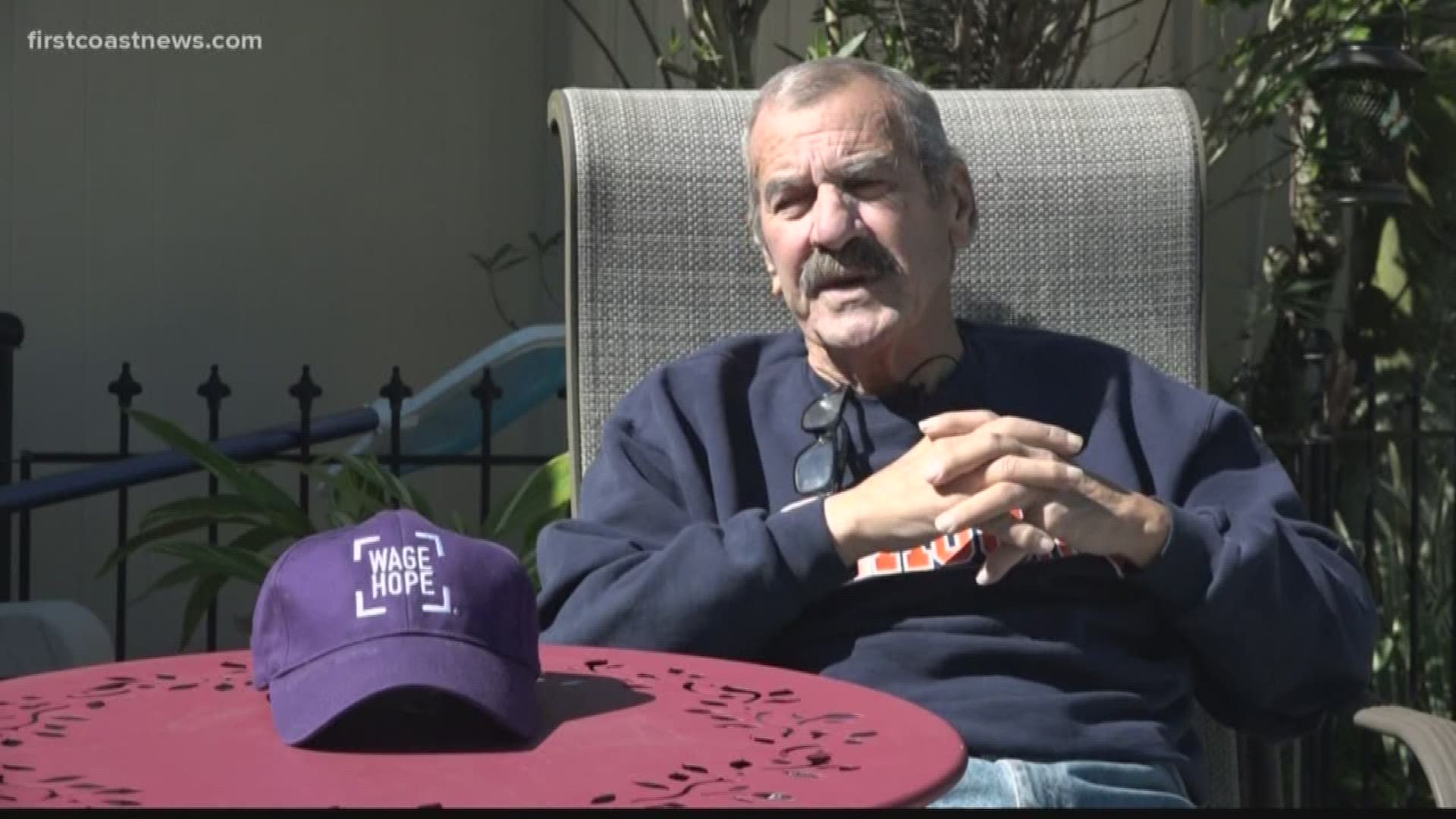JACKSONVILLE, Fla. — Like so many from up north, Fiore DeCosty decided to retire here in Jacksonville.
"Oh I love it here, I absolutely love it," he said while enjoying his backyard.
"This is my man cave out here," DeCosty said. "This is where I come out every day, listen to some music, play with my dogs and feed the plants."
DeCosty is from Rome, New York. A place that has some devastating winters. So naturally you'd think a move down south when he was 65 would be weather motivated, but he actually came down for something much different.
"It was 2010, and I found out I had pancreatic cancer."
His daughter already lived in Jacksonville, and his wife had heard of Mayo Clinic.
"It was ironic, very ironic," he said. "My wife made one phone call to Mayo and before I knew it I was in the surgeon's office." That was when his worst fears were confirmed.
"My whole family is sitting there with me and the doctor says 'yes, you have pancreatic cancer. How do you feel about that?"
He thought it was the end.
"I told the doctor that it must mean I'm going to die, but he looked at me and said 'no, not so fast," DeCosty says.
Pancreatic cancer statistics are extremely alarming. The news of Alex Trebek's stage four diagnosis with this disease has it on the front of everyone's mind right now, and people who have family members who've died from this cancer are probably thinking the worst.
According to the Pancreatic Cancer Action Network, it's one of the deadliest cancers, with the survival rate of just 9 percent.
This disease is the third leading cause of cancer-related deaths in the United States as some 46,000 will die from it in 2019, according to the American Cancer Society.
The issue with so many patients is detection because often the symptoms are vague. Things like abdominal pain, weight loss, nausea and jaundice could be confused with other gastrointestinal issues.
Right now, the Pancreatic Cancer Action Network says there is no early detection test and few effective treatments are available.
However, their hope is to double survival rates by 2020, and for stories like DeCosty's give everyone a shining light.
"You can't stop living," he said. "And I haven't stopped."
DeCosty's surgeons were able to remove the cancer mass from his pancreas. He said the tumor was located in a favorable spot for operating, which many times isn't the case for patients.
He says he had an incredible team of doctors, who encouraged the former high school baseball and football coach to stay positive.
"The surgeon told me his doctors were the team, my family was the team and I am the captain," he remembered. "That was the first time I ever felt really confident."
Certainly the luck of having an operable tumor, coupled with incredible physicians' care played a major part in DeCosty's nine-year survival.
However, he says he wouldn't be alive without the support of his wife, kids and maintaining a positive outlook on life.
"You've got to live your life. You can't just sit there and worry 'oh my gosh, I'm going to die."
If you or a loved one is facing a pancreatic cancer diagnosis, the Pancreatic Cancer Action Network is an excellent resource for information on the disease as well as treatment options and practical ways to deal with the illness day-to-day.

